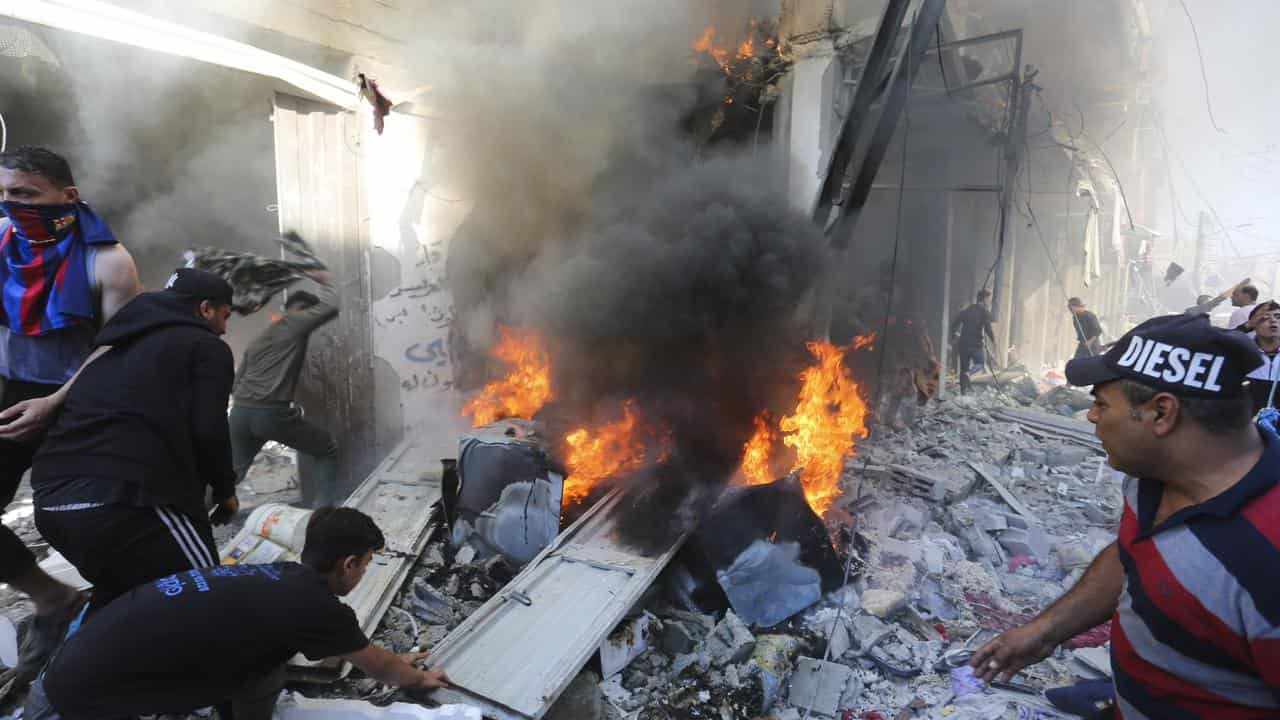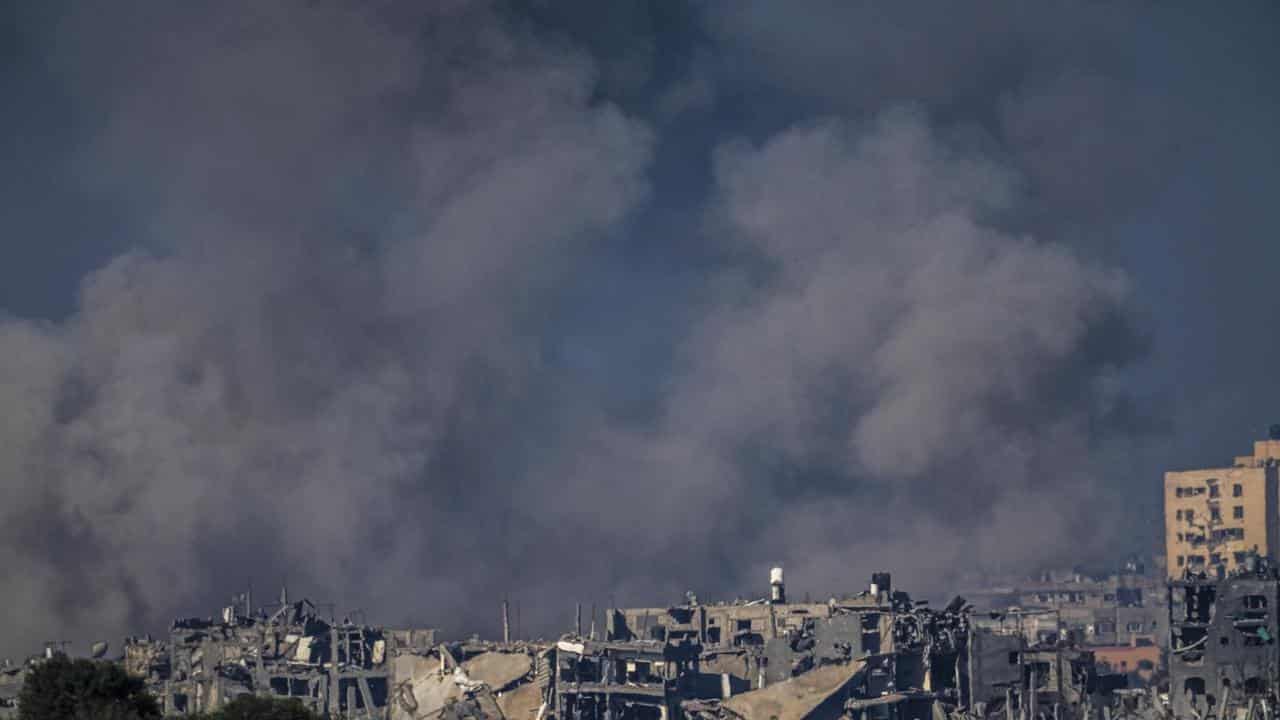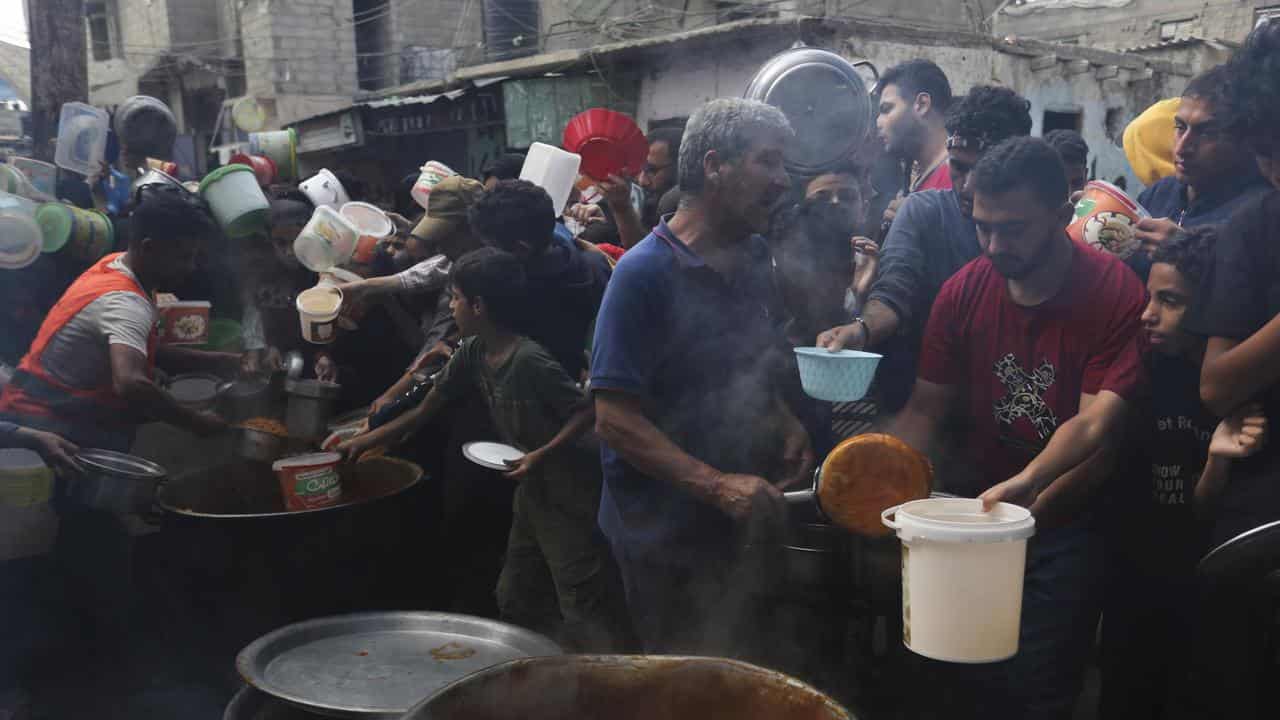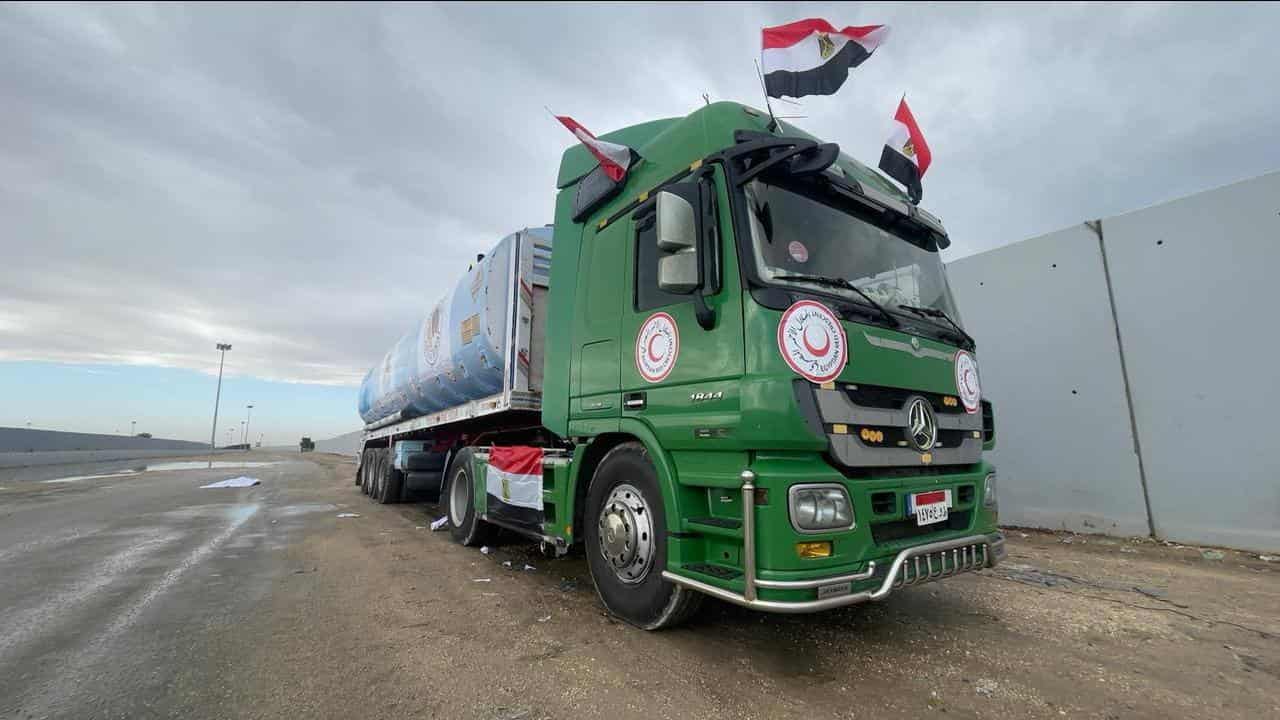
Israeli air strikes on residential blocks in south Gaza have killed at least 32 Palestinians, medics say, after Israel again warned civilians to relocate as it turns to attacking Hamas in the enclave's south after subduing the north.
Such a move could compel hundreds of thousands of Palestinians who fled south from the Israeli assault on Gaza City to move again, along with residents of Khan Younis, a city of more than 400,000, worsening a dire humanitarian crisis.
"We're asking people to relocate. I know it's not easy for many of them, but we don't want to see civilians caught up in the crossfire," Mark Regev, an aide to Israeli Prime Minister Benjamin Netanyahu, told MSNBC on Friday.
Israel vowed to annihilate the Hamas militant group that controls the Gaza Strip after its October 7 rampage into Israel in which its fighters killed 1200 people and dragged 240 hostages into the enclave, according to Israeli tallies.
Since then, Israel has bombed much of Gaza City to rubble, ordered the depopulation of the northern half of the narrow strip and displaced around two-thirds of Gaza's 2.3 million Palestinians.
Gaza health authorities raised their death toll on Friday to more than 12,000, 5000 of them children.
Overnight on Saturday, 26 Palestinians were killed and 23 injured by an air strike on two apartments in a multi-storey block in Khan Younis, according to health officials.

A few kilometres to the north, six Palestinians were killed when a house was bombed from the air in Deir Al-Balah, according to health authorities.
There was no immediate comment from the Israeli military.
Israel dropped leaflets over Khan Younis telling residents to leave to shelters, suggesting military operations there were imminent.
Regev said Israeli troops would have to advance into the city to oust Hamas fighters from underground tunnels and bunkers but that no such "enormous infrastructure" existed in less built-up areas to the west.
"I'm pretty sure that they won't have to move again" if they move west, he said, referring to people in the area.
"We're asking them to move to an area where hopefully there will be tents and a field hospital."
Regev said that since western areas were closer to the Rafah border crossing with Egypt, humanitarian aid could be brought in "as quickly as possible".

With the war entering its seventh week, there was no sign of a let-up, despite international calls for a ceasefire or at least for humanitarian pauses.
"We have prepared ourselves for a long and sustained defence from all directions. The more time the occupation's forces stay in Gaza, the heavier their continuous losses," Hamas armed wing spokesman Abu Ubaida said in a video statement.
Amid warnings its Gaza siege raised the immediate risk of starvation, Israel on Friday appeared to bow to international pressure in agreeing to allow fuel trucks in and promising "no limitation" on aid requested by the United Nations.
Israel said it would allow two truckloads of fuel a day at the request of main ally the United States to help the UN meet basic needs, and spoke of plans to increase aid more broadly.
At Gaza's largest hospital, Al Shifa in Gaza City, Israel said its forces had found a vehicle with a large number of weapons and what it called a Hamas tunnel shaft.
Al Shifa has been a primary target of Israel's ground assault and a focus of international alarm over the deepening humanitarian crisis.
The army released a video it said showed a tunnel entrance in an outdoor area of the hospital.

Israel has long maintained that the hospital sits above a vast underground bunker housing a Hamas command headquarters.
Hospital staff say this is false and Hamas denies using hospitals for military purposes.
Al Shifa staff said a premature baby died at the hospital on Friday, the first baby to die there in the two days since Israeli forces entered.
Three had died in the previous days while the hospital was surrounded.
Hamas also announced the death of a captive from Israel, an 85-year-old it said died of a panic attack during an air strike.
with DPA




